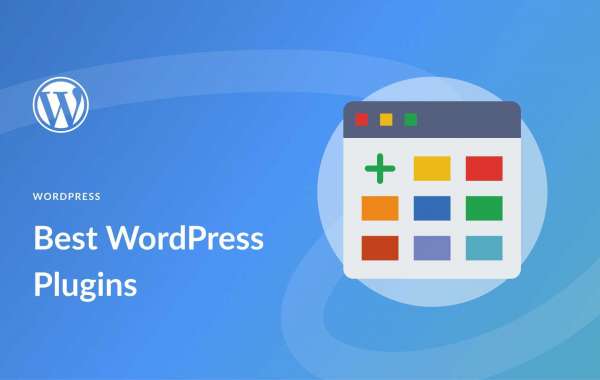Introduction:
WordPress, the most popular Content Management System (CMS) in the world, owes much of its success to its versatile and extensible nature. One of the key elements that contribute to its flexibility is the vast ecosystem of WordPress plugins. These tiny pieces of software add functionality and enhance the capabilities of your WordPress website, empowering users to customize their online presence according to their specific needs. In this article, we will explore the world of WordPress plugins, their importance, how to find and install them, and some must-have plugins to take your website to the next level.
Understanding WordPress Plugins:
At its core, WordPress is a simple and user-friendly platform that allows users to create, manage, and publish content. However, the true power of WordPress lies in its ability to be extended through plugins. WordPress plugins are small packages of code that can be installed to add new features or modify existing ones on your website. These plugins seamlessly integrate with your WordPress installation and expand its functionality without the need for coding or technical expertise.
Importance of WordPress Plugins:
WordPress plugins play a pivotal role in making the platform suitable for various purposes. They provide users with a wide array of options to create and manage different types of websites, from blogs and e-commerce sites to forums and membership portals. Whether you want to enhance your website's SEO, improve its performance, add contact forms, or integrate social media feeds, there's likely a plugin available for your specific requirements.
How to Find and Install WordPress Plugins:
Finding and installing WordPress plugins is a straightforward process. Here's a step-by-step guide to help you get started:
- Accessing the WordPress Plugin Repository: The official WordPress Plugin Repository is the go-to place to find free, safe, and well-maintained plugins. To access it, log in to your WordPress dashboard, navigate to "Plugins" on the left sidebar, and click "Add New."
- Search and Browse for Plugins: You can search for plugins by name or use keywords related to the functionality you need. Additionally, you can browse featured, popular, and recommended plugins.
- Installing a Plugin: Once you've found a plugin that suits your needs, click the "Install Now" button next to it. WordPress will automatically download and install the plugin. After installation, click the "Activate" button to enable the plugin's functionality.
- Uploading a Plugin (Premium or Custom Plugins): For premium or custom plugins that you've obtained from external sources, you can upload them directly from your WordPress dashboard. Navigate to "Plugins" "Add New," and click the "Upload Plugin" button. Select the plugin file from your computer, click "Install Now," and then activate the plugin.
Essential WordPress Plugins for Every Website:
While the specific plugins you need will depend on your website's purpose and goals, some plugins are universally useful for all WordPress websites. Here are some must-have plugins:
- Yoast SEO: Yoast SEO is an incredibly popular plugin that helps optimize your website for search engines. It provides valuable insights and suggestions to improve your content's SEO, readability, and meta tags.
- Akismet Anti-Spam: Akismet is essential for combatting spam on your website. It automatically filters and blocks spam comments, protecting your site from malicious content.
Read Also : ij.start.canon
- W3 Total Cache: Website speed is crucial for user experience and SEO. W3 Total Cache improves your site's performance by caching content and minimizing server load.
- Contact Form 7: Contact Form 7 is a user-friendly plugin that allows you to create and manage multiple contact forms easily. It integrates seamlessly with your WordPress website and supports customization.
- WooCommerce: If you're running an online store, WooCommerce is the go-to plugin. It transforms your WordPress site into a powerful e-commerce platform, offering various customization options for product listings, payments, and shipping.
- Jetpack by WordPress.com: Jetpack is a comprehensive plugin that brings a suite of features to your website, including enhanced security, performance optimization, website statistics, social sharing, and more.
- Wordfence Security: Security is of paramount importance for any website. Wordfence Security is a robust plugin that provides firewall protection, malware scanning, and real-time threat defense.
Read Also : https //ij.start.canon
- UpdraftPlus: Regularly backing up your website is essential to prevent data loss. UpdraftPlus simplifies the process by automating backups and allowing easy restoration when needed.
Tips for Selecting the Right Plugins:
While the WordPress plugin repository offers a vast selection of plugins, it's essential to choose the right ones to avoid potential conflicts and performance issues. Here are some tips for selecting the best plugins for your website:
- Check Compatibility: Ensure that the plugin is compatible with your version of WordPress. Outdated or incompatible plugins can cause errors and security vulnerabilities.
- Read Reviews and Ratings: Before installing a plugin, read reviews and ratings from other users to get an idea of its performance, reliability, and support.
- Active Development and Support: Look for plugins that are regularly updated and supported by their developers. This ensures that they remain compatible with the latest versions of WordPress and receive timely bug fixes and security updates.
- Avoid Redundant Functionality: Installing multiple plugins that offer similar features can lead to conflicts and negatively impact your site's performance. Choose a single plugin that meets all your requirements.
- Security Considerations: Be cautious when installing plugins from untrusted sources or unknown developers. Stick to reputable sources like the WordPress Plugin Repository or well-known premium plugin providers.
Keeping Plugins Updated and Secure:
Outdated plugins can pose security risks and may not work optimally with the latest version of WordPress. Regularly update your plugins to ensure they remain secure and compatible with your website.
Conclusion:
WordPress plugins are the backbone of the platform's versatility and adaptability. They empower users to create unique and feature-rich websites without the need for extensive coding knowledge. By understanding the importance of plugins, knowing how to find, install, and choose them wisely, you can unlock the full potential of WordPress and elevate your website to new heights. Remember to stay vigilant about plugin updates and security to ensure a smooth and secure online presence. Embrace the world of WordPress plugins, and watch your website transform into a dynamic and engaging online destination.
WordPress plugins are the backbone of the platform, providing users with the flexibility, functionality, and customization options necessary to create unique and successful websites. From SEO optimization to e-commerce functionality, the vast library of plugins empowers both beginners and experienced users to achieve their goals without requiring extensive coding skills. However, it is essential to use plugins judiciously, as installing too many can impact website performance and security.
As you embark on your WordPress journey, take the time to research and carefully select plugins that align with your website's goals and needs. Keep them updated, as regular updates ensure compatibility with the latest WordPress versions and enhance security. By leveraging the power of WordPress plugins, you can unlock the true potential of your website and offer an exceptional user experience to your visitors.








